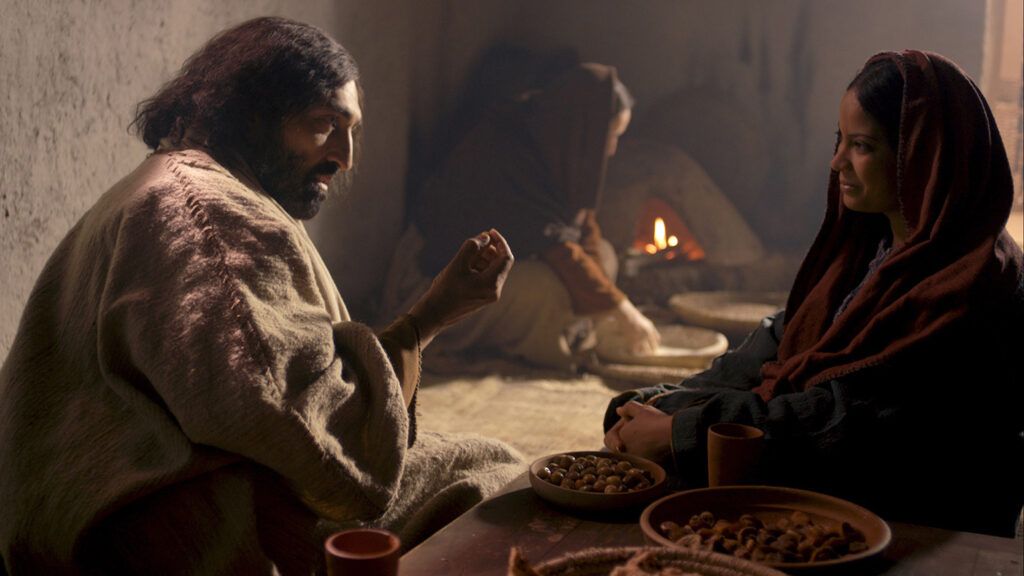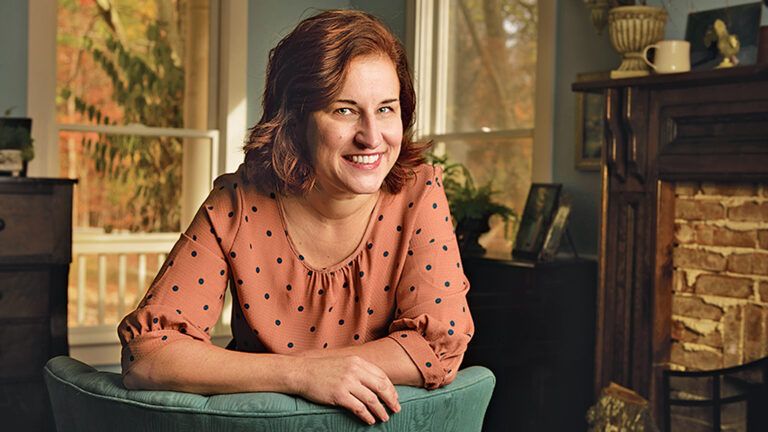Every year, around February 14, I find myself bombarded with messages about soul mates. It pops up everywhere, from TV commercials to social media. And the takeaway is unavoidable: Soul mates are the main reason to celebrate love.
I’ve never really believed in the whole soul mates thing—that there’s one person we’re destined to meet, fall madly in love with and obsess over for all eternity. What I have found are soul connections, friends who just seem to get you on an almost molecular level. Like my friend Sarah.
We met in the seventh grade…and it was dislike at first sight. We were polar opposites. She was open, earnest and outgoing. I was guarded, rational and reserved. And yet, somehow, we became the best of friends. Nowadays, she lives in California and I live in New York. But we’re so in tune with each other that I still feel connected to her, even thousands of miles apart. When I’m blue, she’ll just happen to call. When she goes through a hard time, I feel the pain as if it were my own. Our link makes me wonder: Could it be we’re not put on this earth simply to find “the one,” but rather several people we’re divinely connected to? Not soul mates but soul friends?
Curious, I took my questions to Rabbi Deborah Bravo, who’s written about spirituality and friendship. According to Rabbi Bravo, God doesn’t just want us to have friends. God made us specifically to be in relationships with other human beings.
“From the very beginning, in the creation story, we learn that we are designed to be in partnership,” she says. “The root of the Hebrew word for friendship is actually chaver, which means ‘to connect.’ And friendship is all about connection.”
There’s a mystical benefit to friendship, Rabbi Bravo says. It aids our spiritual development.
“An ancient Rabbinic text advises people to ‘acquire yourself a companion,’” Rabbi Bravo says. “God created us with the purpose of interacting with others. We need these relationships to lift ourselves to a higher plane spiritually.”
There are several notable friendships in the New Testament, from Jesus and Lazarus to Paul and Timothy. Scripture also says that David and Jonathan were so close, it was as if their souls were knit together. Other religious traditions stress the spiritual importance of friendship. In the Muslim tradition, a good friend is someone “whose appearance reminds you of God, and whose speech increases you in knowledge, and whose actions remind you of the hereafter.”
Friendship isn’t just good for the soul, though. It’s good for your health. Dr. William Chopik, an assistant professor of psychology at Michigan State University, recently published a study that showed friends can be more important to physical health and longevity than family. And, in 2005, research from Flinders University found that people with a large network of friends lived 22 percent longer than those without such a network.
There’s even a correlation between friendship and increased pain tolerance, according to the science journal Nature. When faced with a challenging task, study participants with a strong group of friends released more endorphins, those chemicals in the brain that make you happy and reduce pain.
Friend intuition also appears to be very much a thing. In 2013, researchers at the University of Virginia found that the bond between friends can be so strong that when one friend is threatened, the other’s brain reacts as if under duress. It’s true. When Sarah went through a particularly rough breakup, I felt my anxiety mounting even though everything else in my life was fine.
But what about those aspects of friendship that can’t necessarily be quantified? Can friends really be like platonic soul mates?
Yes, says Stephen Cope, a psychotherapist and author of Soul Friends: The Transforming Power of Deep Human Connection. Cope became interested in the idea of friendship on a more spiritual plane eight years ago. He’d just moved to a new city and didn’t know a soul. He met a man named Brian in a meditation class. Although they had nothing in common, the two quickly became friends. Their connection is what Cope calls a soul friendship.
“A soul friend becomes critical to determining who we become as a person,” Cope says. “They’re people we form deep connections with. Connections that transform us.”
According to Cope, these types of friendships can take a few key forms. Twinship, for instance, occurs when we recognize an essential likeness in another and bond over shared similarities. Mystical friendships happen when we feel an almost otherworldly connection to someone. Meanwhile, mirrors are those people who see us as we truly are and reflect essential truths about ourselves back to us.
“Soul friends evoke, sustain, affirm and unify us,” Cope says. “We recognize something in them; they recognize something in us. With soul mates, we’d call it chemistry. There’s something similar, in an unromantic sense, going on with soul friends.”
Cope’s categories of soul friends confirmed a hunch I’d had for some time. The notion that marriage isn’t the only important intimate relationship that adults have.
“Soul friends call us forth,” Cope says. “They draw out the person in us that we want to be. It’s almost as if an invisible bond of energy connects us with these people.”
That’s how I felt about Sarah. We called forth the best versions of each other. That unique tie called to mind something Rabbi Bravo had told me about—the Judaic concept of bashert, which means “destiny” or something that comes directly from God. The Yiddish word is most commonly used to describe soul mates, but that’s actually an incomplete definition, Rabbi Bravo says.
“The concept of a person’s bashert is really about the people you’re destined to be with in relationships, typically a romantic one,” she says. “But it can also describe what is ‘meant to be’ in life. People can have many bashert encounters, relationships or friendships.”
I thought about the many times I’ve felt inexplicably led or connected to the friends in my life. Like when my friend Bekah and I showed up to an event wearing the same exact outfit. Or the night my roommate and I stayed up talking until 2 a.m., even though we both had early mornings. Or the letter from Sarah that arrived at the very moment I was missing home the most. For the first time, I recognized those friendships for what they really were. Bashert. Destiny.





